David Hovel
The Lumiere Project: Bayesian User Modeling for Inferring the Goals and Needs of Software Users
Jan 30, 2013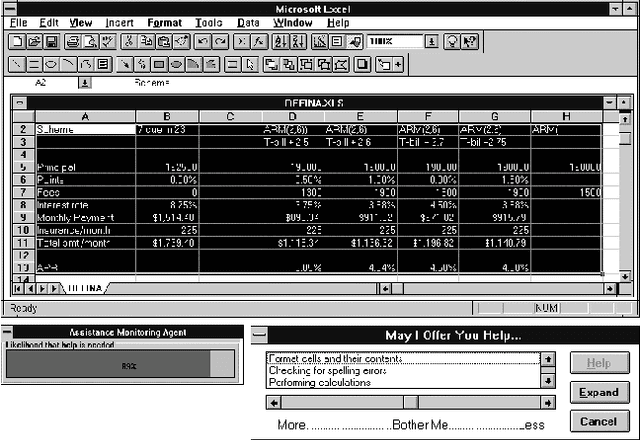
Abstract:The Lumiere Project centers on harnessing probability and utility to provide assistance to computer software users. We review work on Bayesian user models that can be employed to infer a users needs by considering a user's background, actions, and queries. Several problems were tackled in Lumiere research, including (1) the construction of Bayesian models for reasoning about the time-varying goals of computer users from their observed actions and queries, (2) gaining access to a stream of events from software applications, (3) developing a language for transforming system events into observational variables represented in Bayesian user models, (4) developing persistent profiles to capture changes in a user expertise, and (5) the development of an overall architecture for an intelligent user interface. Lumiere prototypes served as the basis for the Office Assistant in the Microsoft Office '97 suite of productivity applications.
Attention-Sensitive Alerting
Jan 23, 2013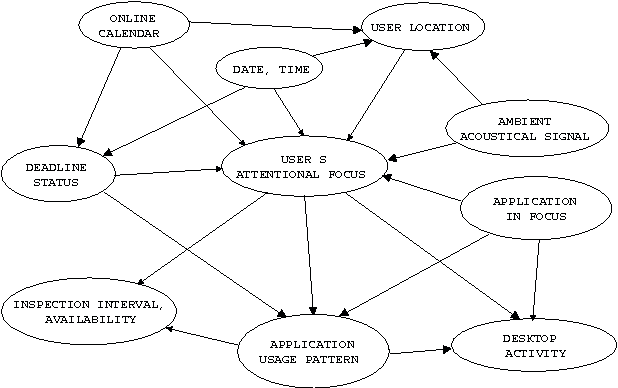
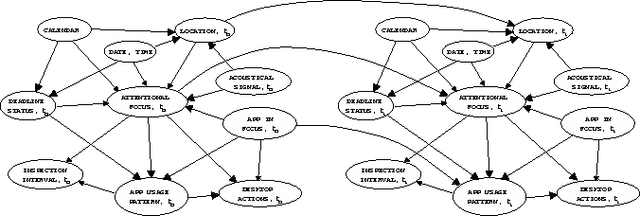
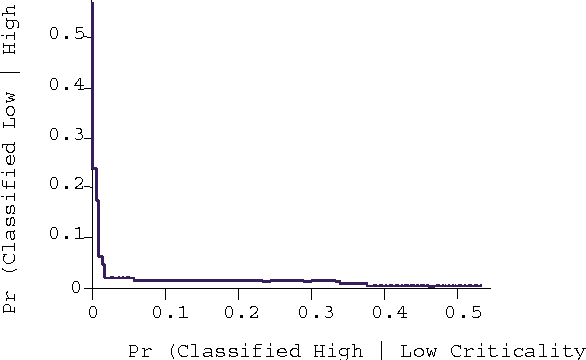
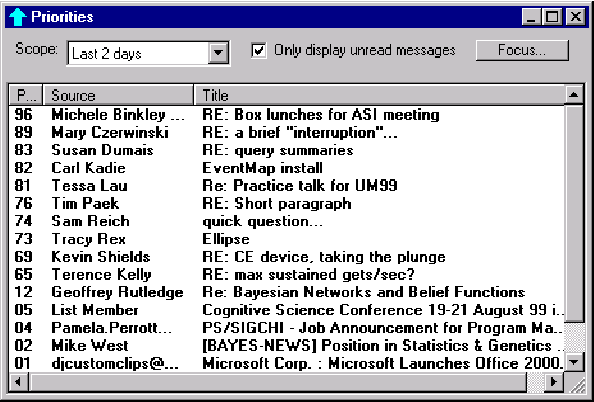
Abstract:We introduce utility-directed procedures for mediating the flow of potentially distracting alerts and communications to computer users. We present models and inference procedures that balance the context-sensitive costs of deferring alerts with the cost of interruption. We describe the challenge of reasoning about such costs under uncertainty via an analysis of user activity and the content of notifications. After introducing principles of attention-sensitive alerting, we focus on the problem of guiding alerts about email messages. We dwell on the problem of inferring the expected criticality of email and discuss work on the Priorities system, centering on prioritizing email by criticality and modulating the communication of notifications to users about the presence and nature of incoming email.
 Add to Chrome
Add to Chrome Add to Firefox
Add to Firefox Add to Edge
Add to Edge